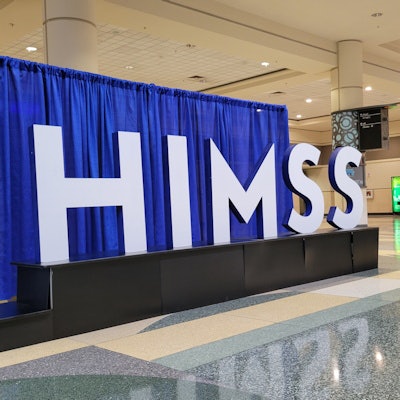
ORLANDO -- Consistent persistence in the face of chaos is how San Francisco Department of Public Health (SFDPH) Chief Information Officer Eric Raffin and his team implemented their COVID-19 hospitalization data repository (CHDR). Raffin shared his experience during a Tuesday session at the 2022 Healthcare Information and Management Systems Society (HIMSS) meeting.
CHDR is a database that joins patient level data across multiple health systems and electronic health records in the jurisdiction that SFDPH serves, which includes the Mission district, Chinatown, and the Tenderloin area. It was developed by Raffin and his colleagues as a replacement for the "fancy spreadsheet" that was being used at the start of the pandemic to track COVID patient hospitalizations.
Unfortunately, the fancy spreadsheet, which was originally designed by a nonprofit tapped by the California Department of Health Care Services to track COVID-19 patient hospital admissions, was not automated. As a result, hospital staff would have to enter the data manually in a time-laborious process that would be prone to error.
Chaos at the start of the pandemic
At the start of the COVID-19 pandemic in 2020, Raffin was embedded in the SFDPH's COVID-19 department operations center as the leader of the data unit. As the country started locking down, there was chaos and disarray, Raffin recalled.
"At the beginning of the pandemic, COVID-19 hospitalizations were manually tracked which resulted in a decrease of confidence in the data," Raffin said.
There was a need for a coordinated response at the federal, state, and local level, but none of the levels were aligned with one another.
"It was very chaotic," said Raffin. "Every hospital could override each other's data. Data integrity was poor, and the data was difficult to use."
Solution: a single source of truth
To address the challenge, Raffin collaborated with multiple parties to create CHDR with the goal of centralizing a wide range of information including diagnoses, lab results, patient demographics, length of stay in the hospital, transfers, and the use of mechanical ventilators.
A major focus of the CHDR project was data quality, Raffin said, so that the data could serve as a "single source of truth" for the city. This meant the data needed to be "usable, complete, accurate, valid, and standardized," Raffin said. It also meant using mainly data generated in the hospital, since "hospital data is the most accurate data that we have," Raffin said.
At the technical level, CHDR was designed as a single database to be accessed within the framework of Epic Caboodle (aka Cogito Data Warehouse), an enterprise data warehouse solution designed for healthcare organizations.
Raffin demonstrated how public health professionals and other stakeholders can use the filtering and visualization features of the CHDR system to generate reports or view graphical dashboards with the latest data on COVID admissions, intensive care unit usage, patient demographics, and similar information. The system can aggregate the data for the entire city of San Francisco or let the user drill down to a neighborhood-by-neighborhood view.
Gratefulness and 'consistent persistence'
Raffin expressed his gratitude to the six cooperating hospital systems in San Francisco, including the Zuckerberg San Francisco General Hospital and Trauma Center and the University of California, San Francisco, that partnered with Raffin to make CHDR a reality.
"We would not be able to do this without everyone's collaboration and their realization that everyone stood to benefit from the work that [we've] accomplished," he said.
Raffin also stressed the importance of establishing an overarching mission for the project, which in the case of CHDR was to "protect and promote the health and wellbeing of all in San Francisco."
To describe how he and his team were able to stay focused on the mission and to overcome the challenges to the implementation of CHDR, Raffin used the term "consistent persistence."
"This is a term that I think I've used most of my career," he said. "Consistent persistence is one way to make sure that ... you feel passionately about the goal you are trying to achieve, especially ones that impact in our case thousands of people."
In that spirit, Raffin ended his presentation with a quote from Valerie Jarrett, the former senior advisor to President Barack Obama: "Part of what makes America strong is our resilience, tenacity, innovation, and our willingness to be optimistic."



















